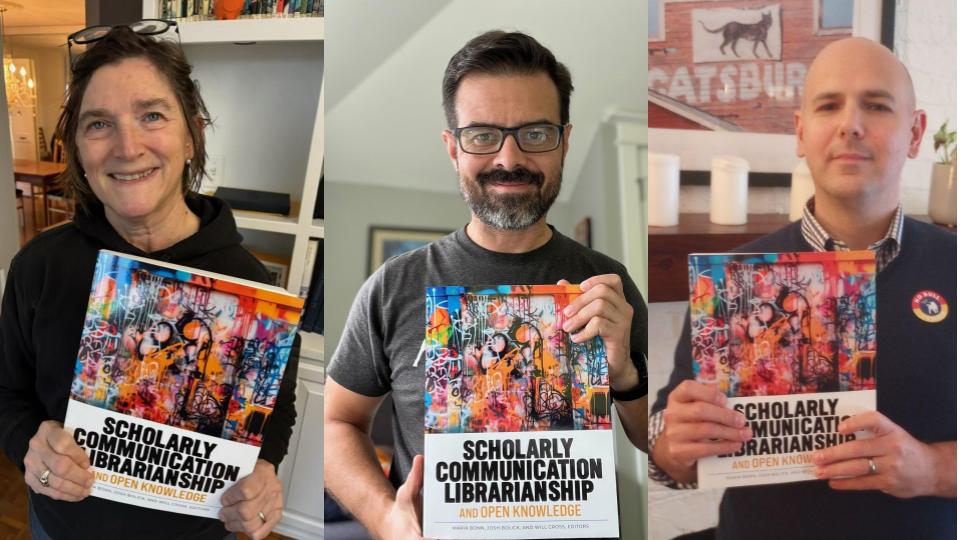About 6 weeks ago, we announced that Scholarly Communication Librarianship and Open Knowledge, the book that has been the core of our collaboration, was off to the printers. Since then, a lot has happened!
The open edition went live on the ALA Store and in the ACRL Open Access Books site in late September, just in time for a pre-conference we provided at the ALISE Conference in Milwaukee (cool city!), where we had a supportive and interested audience. There, we talked about open content as a bridge to practice in LIS instruction.
While we were at ALISE, our print copies arrived at our homes, so we got to hold them in our hands for the first time. Really exciting!

Since then, each of our institutions have issued a press release (UIUC, NCSU, KU). To our delighted surprise, Nick Shockey opened the ACRL/SPARC Forum (recording) with a very generous announcement about the book, and we were invited to write a short piece for ALA’s I Love Libraries blog about OA as an antidote to misinfo and disinfo. That was especially fun because we got to use a lot of horror references. Related: our friends at the Open Library of the Humanities wrote a similarly themed post that is very worth reading. Towards the end of October, our editor let us know that the digital/open version of the book had already been viewed “a whopping 1570 times” in just a month, which is great!
For now, we are trying to take it a bit slower, savor reaching this point, and reflect on lessons learned so far. We also have ideas for moving forward and building on the work so far, so that will be a focus in the new year. Thank you to everyone who contributed, who provided suggestions and supported us to reach this point together. We’re so proud of what we have collectively accomplished, and look forward to building on our success so far!
Maria, Will, and Josh
